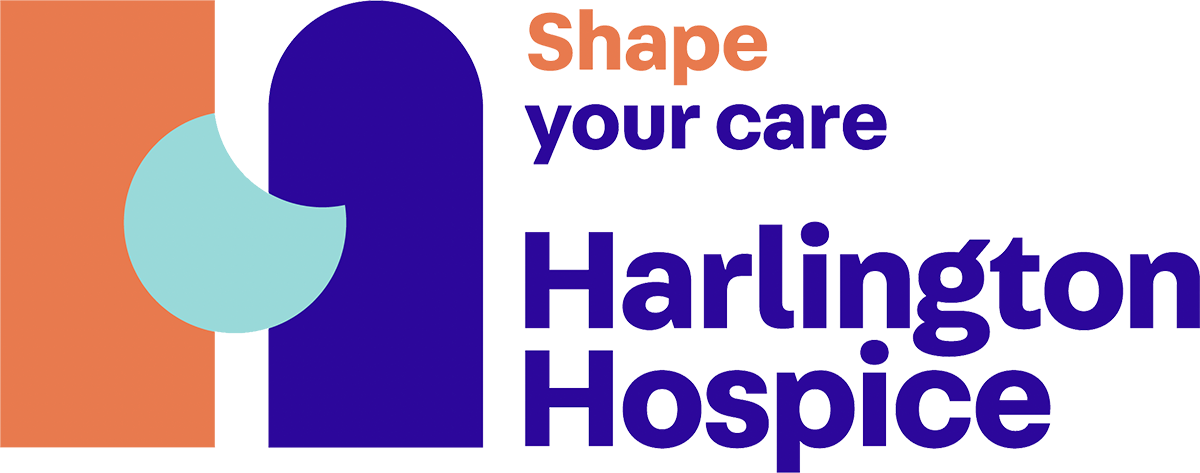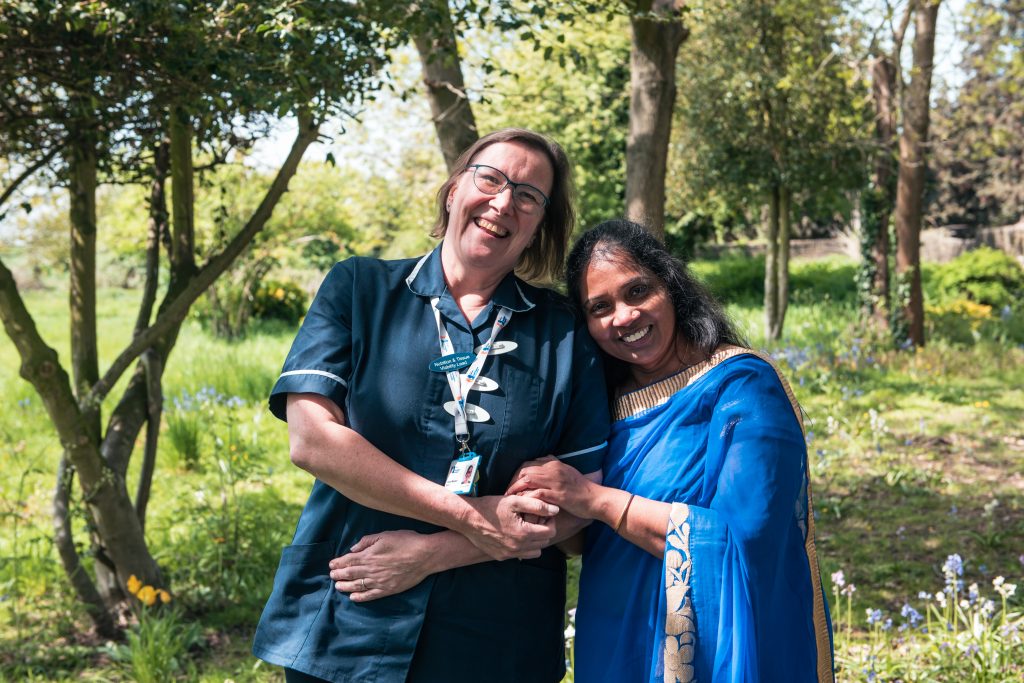Dr Ros Taylor MBE has been Medical Director at Harlington Hospice and the Michael Sobell Hospice since January 2020. Recently, she spoke with our Communications Officer, Harriet Steele, about how the medical landscape has developed over her career, the importance of holism in medical care and the role of hospices in breaking the silence around death and dying. Harriet writes below.
The world of healthcare and wellbeing has become increasingly medicalised over the course of Dr Ros’ career. Whilst this has brought undeniably successful advances in the knowledge and treatment of different illnesses, it has also contributed to the fact that, according to Dr Ros, “we no longer listen to the story of illness”. Dr Ros believes that now, rather than considering the entire person’s goals and needs when developing a care plan, “medicine has been divided into body parts. It has become very physical and technical”. This is a fact that hospices, like the Michael Sobell Hospice and Harlington Hospice, are working hard to disband by re-inserting ‘the person’ into their own care. This is known as a holistic approach, where the social, psychological, and spiritual impact of a person’s illness forms a core aspect of how their illness is understood, rather than focusing solely on their physical health and experiences.
Dr Ros explains that, when considering the course of an illness, it is often expected that the physical symptoms, like pain, will be highest on the list of priorities and concerns to be tackled. However, what has been demonstrated throughout her career in palliative care is that this is not the case. Instead, people worry most about their families and friends and the impact their illness could have on those closest to them. Dr Ros believes that the role of hospice care is to try and “tease out those concerns”, by “having more meaningful conversations, scary conversations”, and to recognise that “the unit of care is not just the person in the bed, but the family around them”. She continued to explain that this is why, through our hospice care, we do not only offer pain and symptom management but also have a vast and wide-ranging Wellbeing Service available, including a plethora of complementary therapies. We work with our patients to help them navigate the social and emotional anxieties they are experiencing. As Dr Ros points out, “people hate the idea of going into hospital because they feel they will lose their identity and won’t be seen as somebody with a past, present, and a future. So, we try to keep people’s identity when we meet them here”.
The role of hospice care is to recognise that ‘the unit of care is not just the person in the bed, but the family around them’.
One way that the Hospices prioritise and respect the identities of those people who use our services is by reconnecting them with what matters. Dr Ros explains that the team works “to reconnect them with people” and to help them navigate the challenging emotions like embarrassment and shame, which can result in the reduction of people’s social networks when they become ill. The day centre programme held at the Hospices before the pandemic offered spaces “where people got together. They didn’t talk about their illnesses, but they talked about what meant a lot to them in their lives, their hobbies and their families”. As we move away from the impacts of the pandemic, these places of peer support and engagement are opening back up in the form of our Wellbeing Programmes, such as our group art therapy sessions and Legs Eleven Lymphoedema club. This critical aspect of hospice care offers an opportunity for the social networks and professional networks (including nurses, doctors, and specialists) of people with advancing illness to feed into one another, supporting both the individuals and their loved ones.
However, Dr Ros explains that hospices not only have an important role to play in the palliative care of individuals, but also hold a wider role in society. This is namely that of educating the public on the process of death and dying and tackling its associated stigma. The medicalisation of the body and of illness not only impacts the form that healthcare takes but also society’s attitude towards and understanding of death and dying more generally. This is something that Dr Ros is particularly keen to tackle. As a Commissioner for the Lancet Commission on the Value of Death she advocates for a new vision of death and dying, one which unites health and social services with increased community involvement and bereavement support. She believes that as society has moved to focus more on the individual than on the collective, we are becoming increasingly disassociated from death as a routine part of living. She comments that “we repress or we forget that we’re mortal” and, in doing so, we limit our ability to freely and comfortably talk about dying. Part of Harlington Hospice’s and the Michael Sobell Hospice’s mission is to open up these conversations, to encourage them to take place throughout people’s lives, and to normalise death and dying outside of the violent depictions in media. In doing so, we hope people can plan for a more meaningful death, rather than approaching it with fear and in silence.
Part of the Hospices’ mission is to open up these conversations … In doing so, we hope people can plan for a more meaningful death.
Initially, the role of hospice care might appear quite cut-and-dry, but once looked at more closely, it quickly becomes apparent how untrue this is. They are vibrant and dynamic wellbeing networks which seek to support all people living alongside a serious illness, be that the individual themselves or their loved ones. They are hubs of knowledge which are growing louder in their calls for education and awareness around dying and the end-of-life journey. Most importantly, they are holistic healthcare services where people can expect to be treated with respect and dignity whilst maintaining the integrity of being an individual with an upheld sense of identity.







